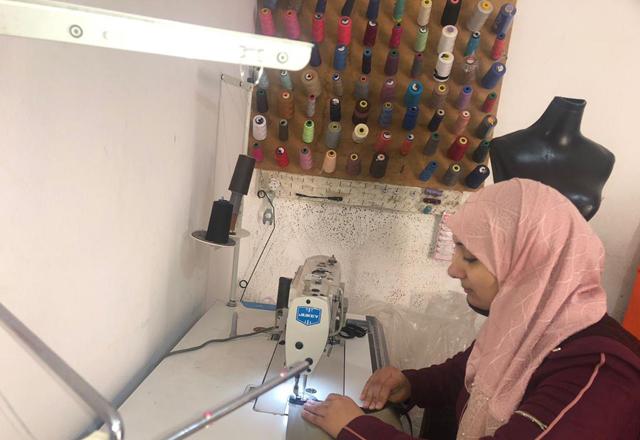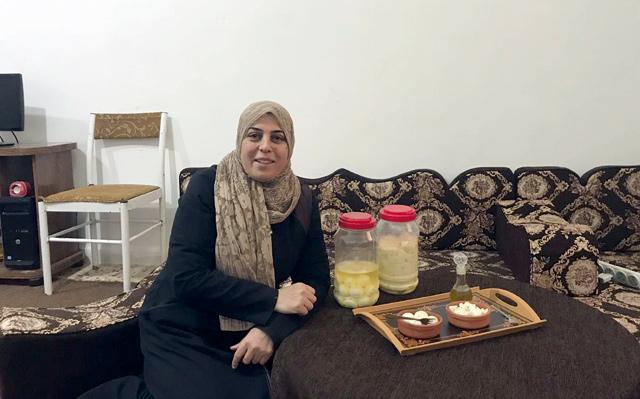You are here
From her sewing workshop, Jordanian woman dreams of own trademark
By CARE Jordan - Apr 06,2022 - Last updated at Apr 06,2022

Aya, a Jordanian in her 30s, acquired the skills necessary for business sustainability and development from a CARE International-administrated training course (Photo courtesy of CARE Jordan)
AMMAN — From her home in Amman’s Marka neighbourhood, Aya Saleh Ibrahim turned a small room into a sewing workshop, where she repairs clothing, and assembles fabrics and leather before selling them to a factory.
Aya, a Jordanian in her 30s, started her home-based business some two years ago when she decided to utilise her most favourite hobby and turn it into a stable income to provide for her family.
“I have always loved sewing since a young age. I thought that I would make a living from my hobby but without affecting my four daughters,” Aya said.
For Aya, sewing remains the job she loves to do despite its low returns. “I aspire to have my own trademark carrying my name or the name of my daughter ‘Asia’,” she said
The COVID-19 pandemic was “really tough” for Aya as it brought a “complete halt” of demand for recycled clothes.
“The factory that buys my products also closed during the pandemic and that had a direct impact on my financial situation,” she said.
But Aya has recently learned how to address obstacles hindering her business thanks to a specialised training course by CARE International in Jordan, funded by the Dutch National Postcode Lottery, which targeted a group of Syrian refugees and Jordanians running micro, small-and medium-sized enterprises (MSMEs).
From the CARE International-administrated training course, Aya said she acquired the skills necessary for business sustainability and development, including marketing and profit increase strategies, budgeting, problem-solving, adaptation and customer service, among others.
With the MSMEs facing a lot of challenges and changes during the pandemic, CARE International has modified the marketing and project management strategies taught to beneficiaries to be able to cope with such new transformations.
As such, the new training is aimed to equip beneficiaries with the best practices according to three dimensions: Financial management and plan updating during crises, conducting a review of the financial situation and improving cash flow for MSMEs, and using effective marketing strategies via social media platforms.
The training has focused on marketing strategies during crises as well mechanisms to maintain and develop a customer base during the pandemic, using effective crisis management tools, including e-mail marketing, offering discounts and competitive promotions. The training has also focused on product packaging and hygienic standards.
The training was given up to a total of 100 Jordanian and Syrian men and women from July to September 2021 over four courses, in Amman, Karak, Mafraq and Zarqa.
(CARE Jordan contributed this article to The Jordan Times)
Related Articles
“I was unable to speak to anyone for four months when we first fled to Jordan, not even to my own family,” says Aya, a 17-year-old Syrian gi
ZARQA — Having retired after 20 years of working as a nurse, Ghada Al Khatib had sunk into depression, but the 48-year-old refused to give i
AMMAN — Syrian national Abeer Abbas was able to establish her own income-generating business, transforming a modestly equipped kitchen into



















